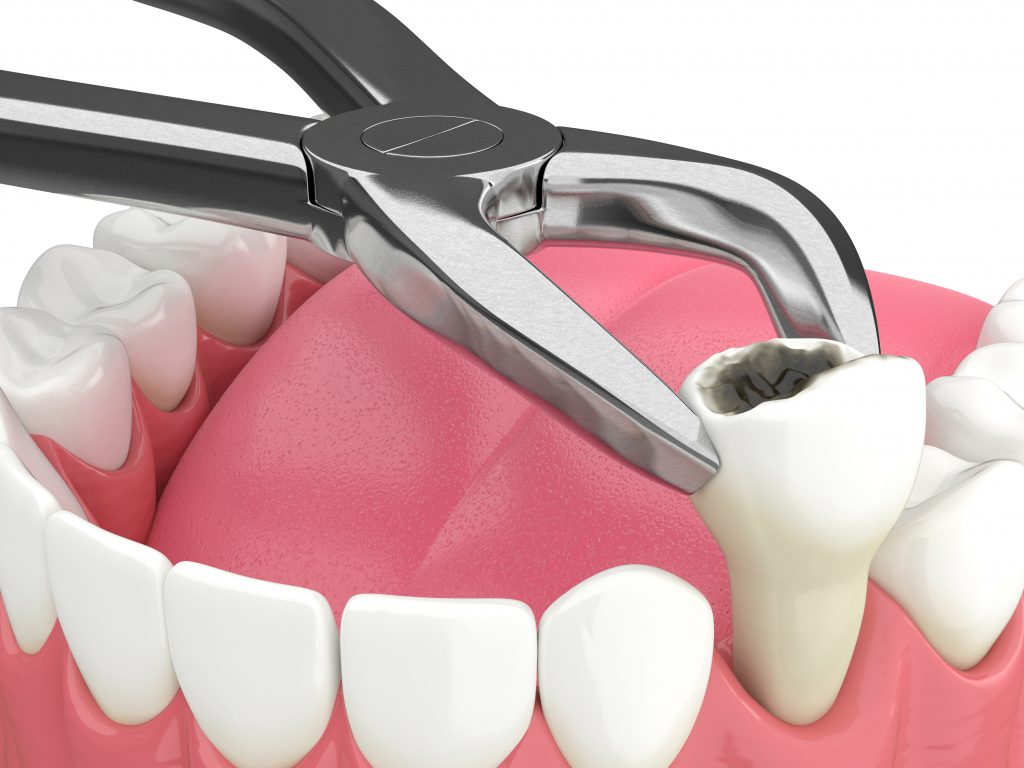Tooth Extraction
Santa Fe, TX Dentist

Third molars, or wisdom teeth, are the last set of permanent molars to emerge. These teeth are also the most likely to require extraction, due to several complications. However, other teeth may also require extraction if they cannot be saved by root canal therapy or other treatment. Some of the most common reasons to have teeth extracted include:
- Impacted tooth – tooth is trapped beneath bone or gums and not emerging properly
- Crowding or small mouth – emerging teeth may cause other teeth to shift or crack due to lack of space
- Decay or infection – when a tooth is affected by extreme decay or infection that cannot be corrected with filling or root canal treatment, it may require extraction
Simple Extraction
If you are experiencing tooth sensitivity or are suffering from advanced periodontal disease, we may recommend a tooth extraction. With a simple extraction, our dentist can safely remove the affected tooth without the need for major surgery.
A few situations in which a simple extraction can alleviate pain include:
- Advanced periodontal disease
- Extra teeth or baby teeth that impede adult teeth
- Preparing a patient for orthodontic treatment
- Removing a fractured tooth
- Severe tooth decay
Surgical Extraction
The surgical removal of many teeth at one time is quite different than the simple extraction of one or two teeth. Because the bone must be shaped and smoothed prior to the insertion of a denture, the following conditions may occur, all of which are considered normal:
- The area operated on will swell reaching a maximum in two days. Swelling and discoloration around the eye may occur. The application of a moist warm towel will help eliminate the discoloration quicker. The towel should be applied continuously for as long as tolerable beginning 36 hours after surgery (remember ice packs are used for the first 36 hours only).
- A sore throat may develop. The muscles of the throat are near the extraction sites. Swelling into the throat muscles can cause pain. This is normal and should subside in 2-3 days.
- If the corners of the mouth are stretched, they may dry out and crack. Your lips should be kept moist with an ointment like Vaseline. There may be a slight elevation of temperature for 24-48 hours. If temperature continues, notify our office.
In most cases, our dentist will see you within 24-48 hours after surgery and make the necessary adjustments to relieve those sore spots. Failure to do so may result in severe denture sores, which may prolong the healing process.
We may recommend extraction of one or more of your teeth if any of these issues apply to you. During your consultation, we may also recommend sedation dentistry to make your experience more comfortable.
Post-Extraction Care
After your extraction, you will need to be driven home by a friend or family member. You will require rest, but lie with your head propped on a pillow to prevent prolonged bleeding.
We will apply gauze when your extraction is complete. When it becomes soaked, change it for a fresh piece. Use pain medication and ice pack as directed for pain and swelling. If bleeding continues beyond 24 hours, contact our office immediately.
For the first few days following extraction, limit your diet to soft foods. Avoid smoking or using a straw, as the pressures created by these actions can slow clotting and loosen sutures.
For more information or an extraction consultation, contact our office.


